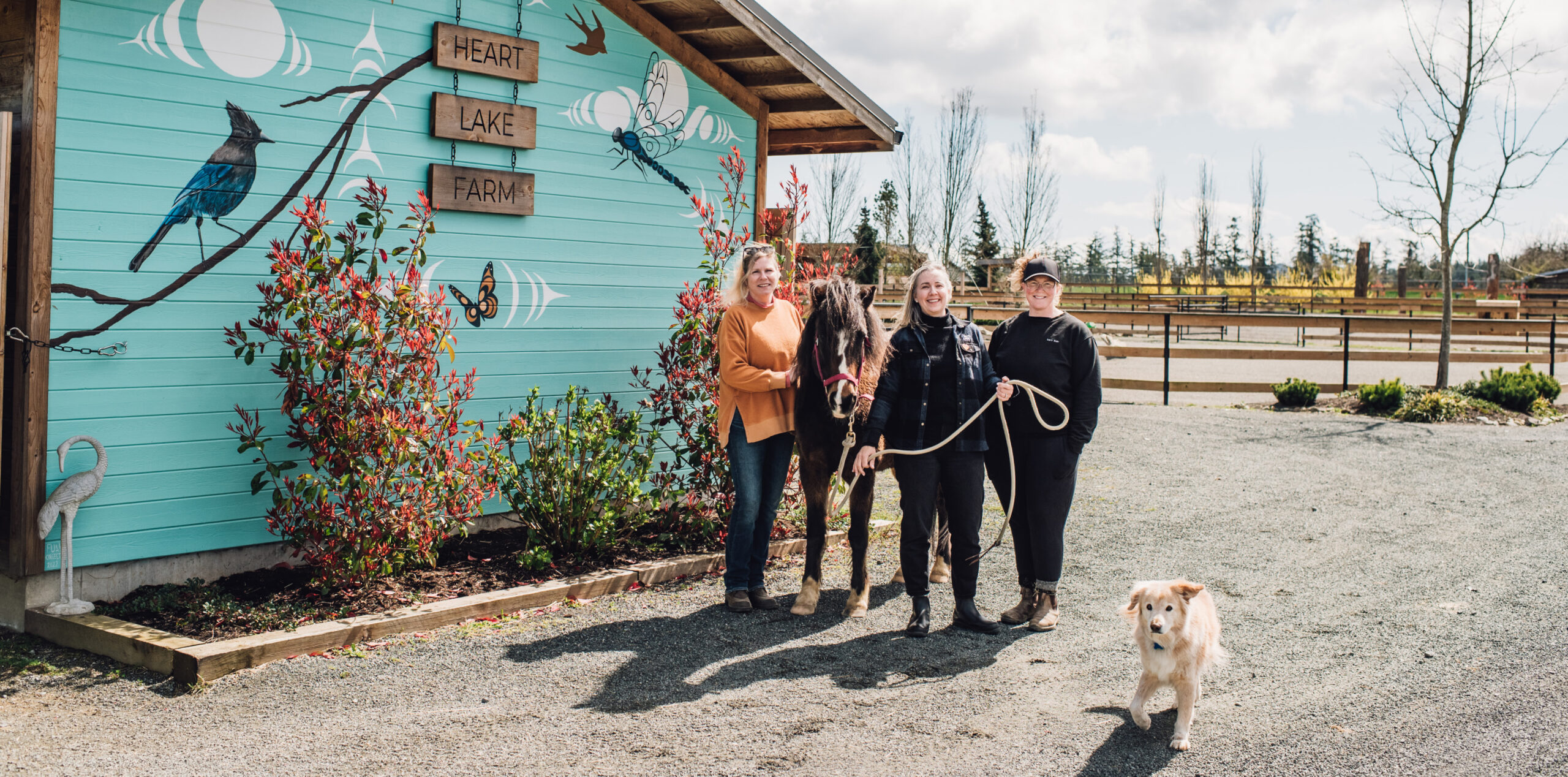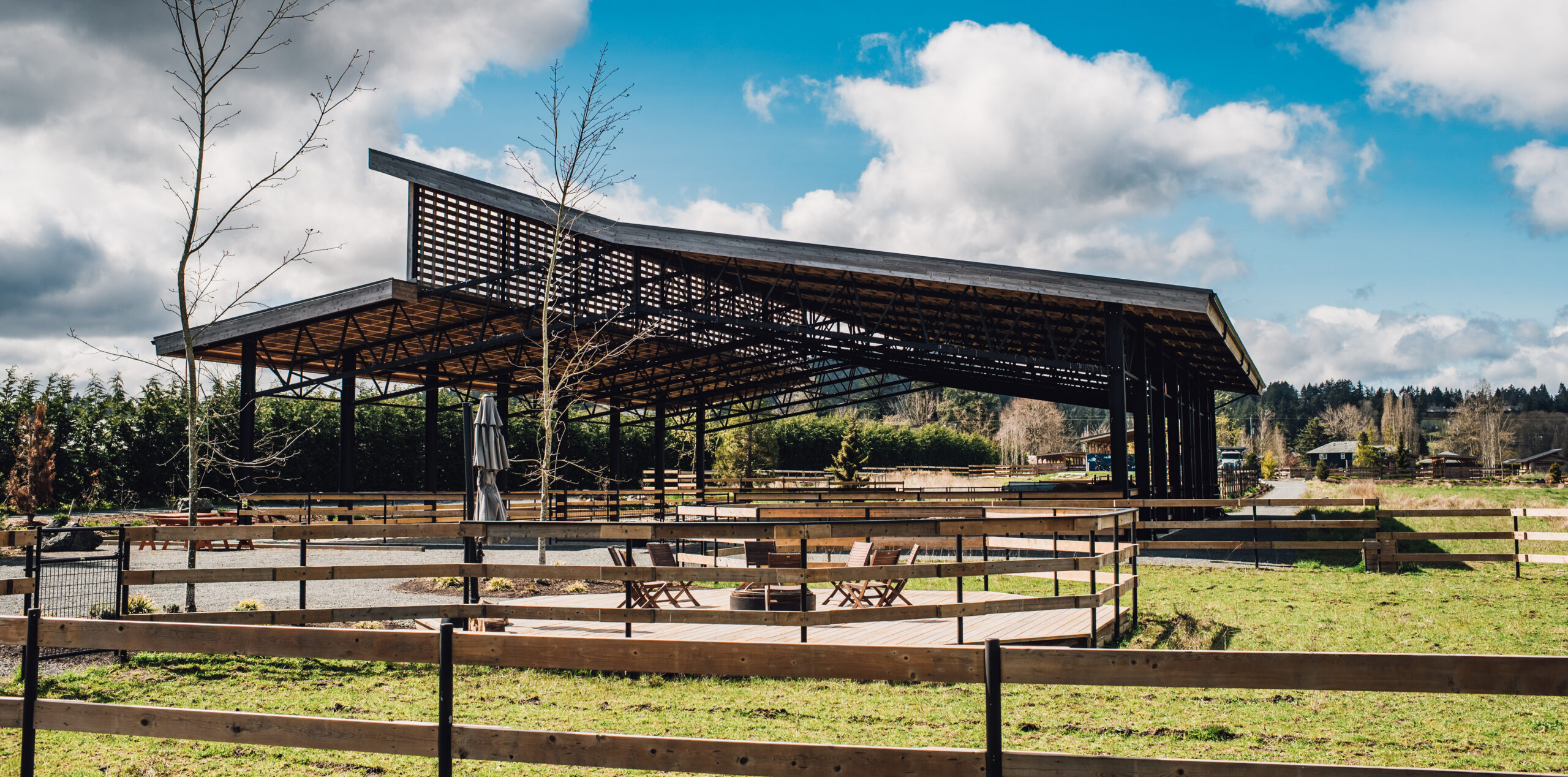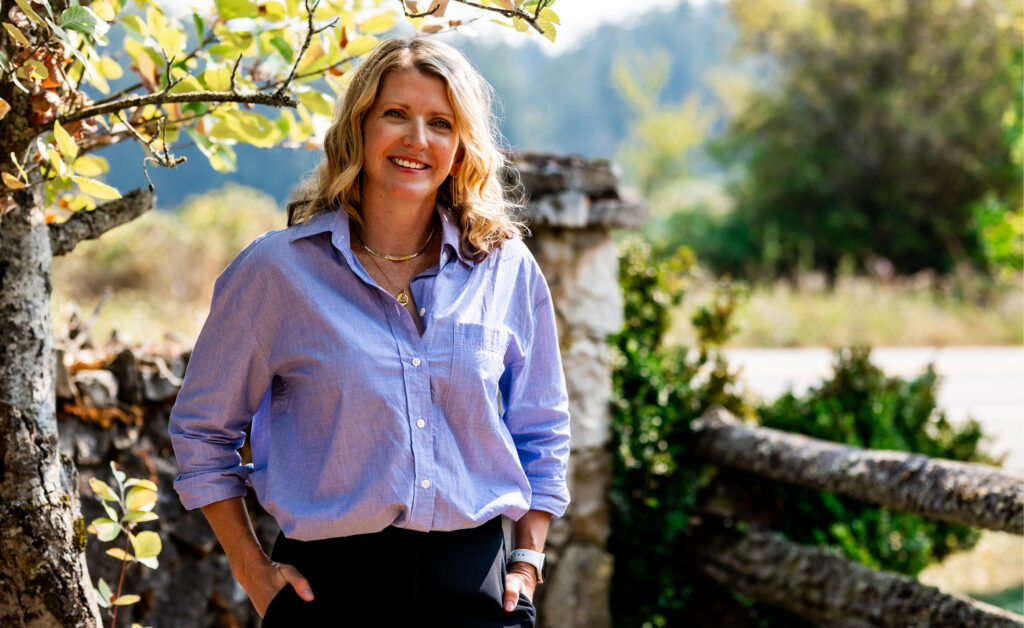by Cassidy Nunn | photos by Nunn Other Photography –
Stepping foot onto Heart Lake Farm in Saanichton, it’s easy to feel an immediate sense of calm, peacefulness and a distinct connection to the earth and nature. The 40-acre property was purchased in 2018 by Jessica and Scott Lake, with the intention to transform the somewhat swampy area into a centre where they could offer nature-based counselling in an agricultural setting, of which horses would be at the heart. Jessica had been inspired after seeing a therapeutic program for veterans working with horses and, although she didn’t have a background in mental health or therapy herself at that time, she says that “we were at a stage in life where we could give back.” Together she and Scott decided to “create the space and find the experts in the field,” to run these sorts of therapeutic programs, which range from Equine Assisted Learning (EAL) to one-on-one counselling sessions with a counsellor, psychotherapist or psychologist.
Although Jessica has been around horses and involved in riding most of her life, she’d never owned a horse before the purchase of this property; she and her husband are now the proud owners of seven horses and ponies, all of which – along with three other boarded horses – are used in the various therapeutic programs offered on the farm. The horses include a wide variety of breeds, sizes and personalities, from Newfoundland ponies and quarter horses to a larger draft-horse cross and a miniature horse – the feistiest of the herd according to Jessica. The horses are divided into two herds, based on their personality dynamics and various feeding needs, but the horses are often allowed to intermingle as a larger group during the day.
Jessica is passionate about “not doing harm in the pursuit of doing good,” and this philosophy has guided her in how the property would be transformed, from using native plants and electrifying as many of the farm vehicles as possible to using an electric tractor, a hybrid skid-steer, electric ride-on lawnmower and electric side-by-side. Beautiful wooden shelters and paddocks for the horses are lined by more than 200 trees that have been planted on the property so far. Towards the back of the property is a large, covered arena with open sides, picnic tables, grassy turnout fields for the horses and larger seating areas where workshop attendees can sit in a semi-circle while surrounded by horses on the outside. Another large field is hayed each year and tall shrubs create a privacy screen from the neighbouring property.
All the programs offered with the horses here take place on the ground – building relationships with the horses from the ground teaches so many incredible skills and learning to read the horse’s body language. “That is where the learning happens – where you have to slow down and not make assumptions,” says Jessica. Occasionally the horses will go riding with the owners or staff, but as Jessica says: “riding is totally unnecessary to meet needs.” The therapy programs can take an emotional toll on the horses as well, and she’s ensured their needs are well looked after, surrounding them with excellent caretakers, as well as Equine Behaviour Specialist Brooklyn Greig, who will often be a part of sessions that include the horses being turned out loose around the workshop attendees. Safety is a high priority, and there’s a lot of training and time spent with the horses behind the scenes to ensure a positive experience for both attendees and the horses. “The offerings at Heart Lake Farm create an opportunity for people to reconnect with themselves, nature, and with horses, who are brilliant at teaching how to slow down and be present with what is,” says Brooklyn.
“Almost all programs are organized in conjunction with another society,” adds Jessica. “They know their clients and membership … and are the experts in their fields.” Some of the partner organizations include Bridges for Women, the Victoria Brain Injury Society and Camosun College, to name a few. While the programs are often fully booked up, Jessica encourages schools, social service agencies and charitable organizations to still reach out. She hopes to continue to raise awareness in this field and is busy setting up a charitable foundation to help fund other similar programs. “I’d love to see this type of work elevated across the world,” she says.
For more information visit www.heartlakefarm.ca.





